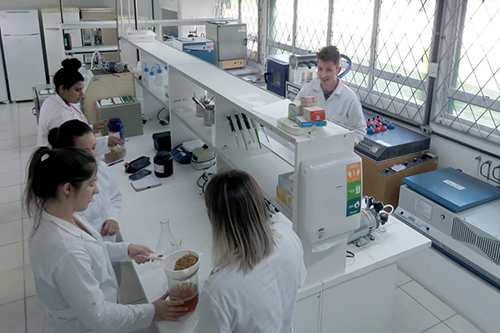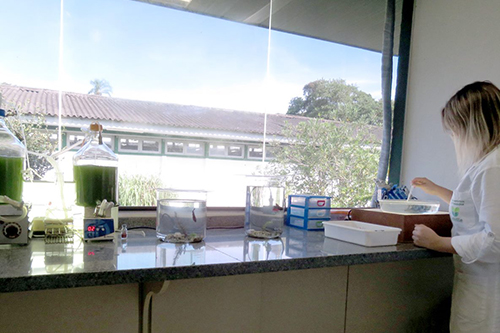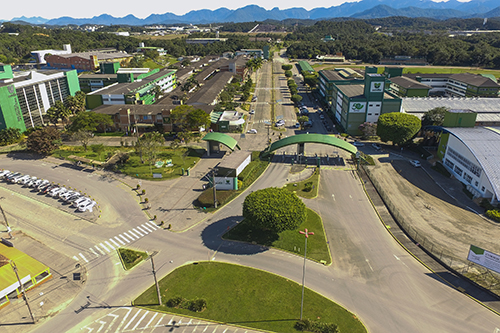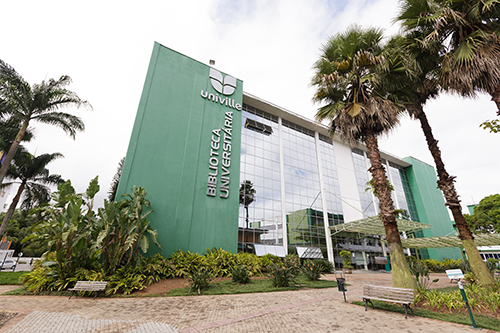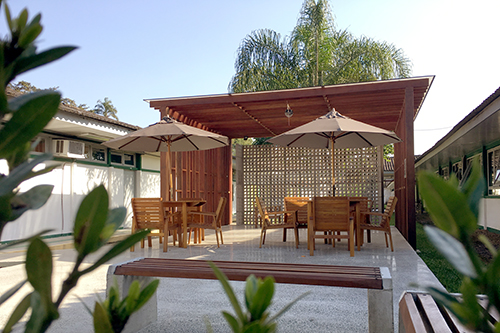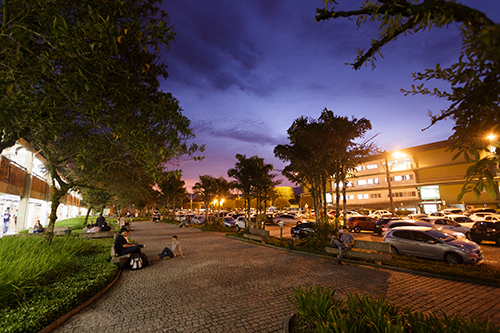
Conceito 3
CAPES – Quadrienal 2017-2020
(escala de 1 a 5)
Learn more about the program
The Master’s Degree in Process Engineering has only one concentration area, Process and Product Development and Management, and aims to qualify professionals to act in the industrial, academic, and scientific fields, being able to absorb and develop innovative technologies, and to create less polluting and environmentally correct materials, products, and process.
History of the program:
The Post-Graduation Program in Process Engineering started in 2006. It was recognized by the State Board of Education, Decreet no. 659, published on the State Official Journal of Santa Catarina of September 25 of 2007, and by the Coordination for Improvement of Higher Education (CAPES), Order no. 2,642, of July 27, 2005, published on the *UNION* Official Journal of July 28 of 2005.
Master in Process Engineering’s Profile:
The Master’s in Process Engineering will be able to act in the development and management of new processes and environmentally correct products, both in the academic-scientific field and industrial processes, in an integrative way.
Students’ profile: professionals graduate in Engineering, Chemistry, Industrial Chemistry, Computer Science, Pharmacy, Physics, Mathematics, as well as technologists in Chemistry, Materials, Mechanics, Automation, and Industrial Processes. Other courses in similar areas will be subject to type-approved by the master’s collegiate.
Explore the spaces of the course and the University
Univille has a comprehensive infrastructure for your education.
Check out some of the places you can use for both theoretical and practical classes, as well as for study and relaxation moments!
Learn more about the course.
Curriculum
The program has a minimum duration of 18 months and a maximum of 24 months, 24 credits for the mandatory and elective subjects and 6 credits for the dissertation.
Mandatory subjects
Survey Methodology and Science Communication 30 h/a 2
Engineering Process Bases 60 h/a 4
Statistics Applied to Processes 30 h/a 2
Clean Technologies Applied to Industrial Processes 45 h/a 3
Knowledge and Innovation Management Bases 30 h/a 2
Industrial Production Management 30 h/a 2
Total of credits of mandatory subjects: 15
Elective subjects
Special Topics 15 h/a 1
Waste Management, Treatment and Valorization 45 h/a 3
Materials Engineering and Technology 45 h/a 3
Computer Techniques Applied to Processes 45 h/a 3
Bioprocesses 30 h/a 2
Strategic Knowledge to Innovation Management 45 h/a 3
Engineering Economics 30 h/a 2
Academic Mobility * - -
Concentration Area: Development and Management of Processes and Products
LINES OF RESEARCH
Cleaner technologies applied to processes and products.
This line of research mainly aims to develop production processes and economically viable alternatives to obtain products of industrial interest, including that waste valorization, reuse, treatment, and management, as well as the development of safe and environmentally correct products, services, and packages during their life cycle, to reduce the environmental impact caused by the material accumulation.
Involved professors:
Profa. Dra. Ana Paula Testa Pezzin
Profa. Dra. Andréa Lima dos Santos Schneider
Profa. Dra. Bianca Goulart de Oliveira Maia
Profa. Dra. Denise Abatti Kasper Silva
Profa. Dra. Elisabeth Wisbeck
Prof. Dr. Flares Baratto Filho
Profa. Dra. Noeli Sellin
Product, Knowledge, and Innovation Management
This line of research deals with issues related to product, knowledge, and innovation management processes present in organizations, trying to reach sustainability, considering the theoretical-methodological bases to promote reflections, improvements and new and more integrated and coordinated processes. In Production Management, the objects of study are the innovation and the improvement of industrial and organizational processes, aiming to anticipate problems, reduce costs, and maximize sustainable results. In Knowledge Management, the objects of study are the models and processes of knowledge socialization, externalization, combination, and internalization, addressed to greater effectiveness in organizations. In Innovation Management, the objects of study are the models of innovation management in organizations, educational institutions, and other innovation habitats, and a precursor and adjacent processes that lead to innovation.
Involved professors:
Prof. Dr. Claiton Emilio do Amaral
Profa. Dra. Denise Abatti Kasper Silva


